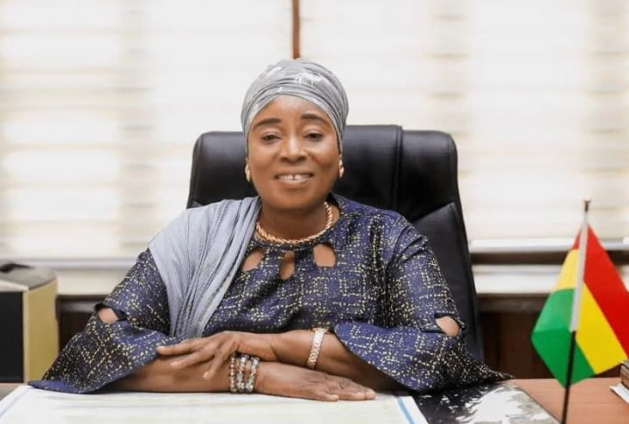The Minister-Designate for the Ministry of Gender, Children and Social Protection, says the Affirmative Action Bill is a key bill she will look at when approved as the substantive minister.
Ms Lariba Zuweira Abudu said currently, the citizens needed the bill and she was very sure President Nana Addo Dankwa Akufo-Addo would leverage the passage, especially when he was a gender champion of the time.
Ms Abudu said this on Thursday when she appeared before the Appointments Committee of Parliament for vetting.
Madam Elizabeth Ofosu-Adjare, a Member of the Appointments Committee and the NDC MP for Techiman North, asked for her opinion on what she described as "a long overdue bill."
"Mr Chairman, so the bill is in cabinet, we will draw it and relay it. I have looked at it and I think that a lot of consultation has to be done with Members of Parliament; both females and males,” Ms Abudu said.
"When we come together we can do it. So I will knock on your doors to help me so that we can pass the bill.”
Ghana legislated an Affirmative Action Act in the middle of 1960, which allowed 10 women members to represent the regions of the country in the then Legislature.
The law recognised that women's political participation was a critical component of democratic dialogue and social cohesion.
Women's representation in all policy-making spaces in Ghana stands below the United Nations (UN) threshold of 30 per cent.
Currently, women's representation in Ghana's Parliament stands at 14.5 per cent, while in the District Assembly System, below five per cent .
The situation is no different in the government's ministerial, ambassadorial, and board appointments.
The persistent low representation of women in these key decision-making spaces makes it nearly impossible for women's effective contributions to Ghana's development, despite Ghana signing on to various international protocols and conventions, pledging to ensure 30 to 40 per cent representation of women.
Responding to a question on the conditions and work nature of head potters, mostly called "Kayayei”, Ms Abudu, who is also an MP for Walewale on NPP’s ticket, said education was the only tool for enlightening the ladies who found themselves in that activity.
She advocated a policy where children would not be part of the "Kayayei" business and where they were 18 years and above, their activities would be carried out in a dignified manner.
She told the Committee that Information Technology was also another tool that she would employ to train the ladies.
"I believe it is the only brain between poverty and wealth and enlightenment," she said.
"Once they have smartphones, they are going to be trained to sell tomatoes technologically with their phones, " she said.
Born on May 12, 1966 in Walewale, Ms Abudu has a Masters in Leadership Development from the University for Development Studies, Tamale.
Latest Stories
-
Alumnus Returns with a ‘Gift’: Dr Omane Boamah transforms Pope John SHS roads
5 minutes -
Jorginho joins Flamengo after Arsenal departure
1 hour -
Beckham scores a winner with the royal circle
1 hour -
Was that Djokovic’s goodbye to the French Open?
2 hours -
Gauff and Sabalenka face off in French Open final
2 hours -
Sinner beats Djokovic to set up Alcaraz final
2 hours -
Why ‘the game is about glory’ has a hollow ring at Spurs
2 hours -
Italy in ‘difficult moment’ after Norway defeat
2 hours -
Global EarthTribe applauds Ghana’s ban on Styrofoam, offer support for sustainable alternatives
2 hours -
Ancelotti’s first game as Brazil boss ‘special’ despite Ecuador draw
2 hours -
Makers and Partners leads planting exercise at GAF Critical Care and Emergency Hospital
2 hours -
OSP lied about Ofori-Atta’s medical report – Frank Davies claims
3 hours -
Defence Minister welcomes Northern chiefs in Central Region, praises their support
3 hours -
Ghana’s most potent weapon against corruption is OSP – Kissi Agyebeng
3 hours -
World Environment Day 2025: A call to eliminate plastic pollution in Africa
3 hours

